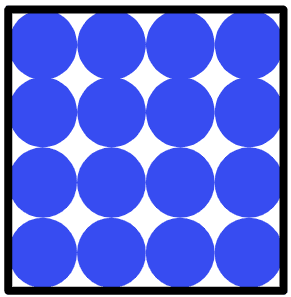State changes: fundamentals
I can describe the processes of melting, freezing, boiling, and condensation, using a simple particle model to explain these state changes.
State changes: fundamentals
I can describe the processes of melting, freezing, boiling, and condensation, using a simple particle model to explain these state changes.
These resources will be removed by end of Summer Term 2025.
Lesson details
Key learning points
- A simple particle model explains melting, boiling, freezing, and condensing processes.
- Boiling is when a liquid becomes a gas throughout, forming bubbles. Condensation is when gas turns into liquid.
- Melting is when a solid turns into a liquid with added energy. Freezing is the reverse: liquid to solid, losing energy.
- The particles remain the same size and shape as they do not have bulk properties like melting and boiling points.
Keywords
Melting - When a substance changes from a solid state to a liquid state.
Freezing - The process of a substance changing from a liquid state to a solid state.
Forces of attraction - A pulling force that keeps particles close together.
Boiling - When a substance in the liquid state is heated, gas bubbles form and it changes to the gas state.
Condensing - When a substance in the gas state is cooled and changes to a liquid state.
Common misconception
Pupils often think that the particles within the liquid will have melted or boiled rather than remain the same size and shape, i.e. atoms do not have bulk properties like melting and boiling points.
Ensure that you specifically say that the particles themselves will not melt or boil.
To help you plan your year 10 chemistry lesson on: State changes: fundamentals, download all teaching resources for free and adapt to suit your pupils' needs...
To help you plan your year 10 chemistry lesson on: State changes: fundamentals, download all teaching resources for free and adapt to suit your pupils' needs.
The starter quiz will activate and check your pupils' prior knowledge, with versions available both with and without answers in PDF format.
We use learning cycles to break down learning into key concepts or ideas linked to the learning outcome. Each learning cycle features explanations with checks for understanding and practice tasks with feedback. All of this is found in our slide decks, ready for you to download and edit. The practice tasks are also available as printable worksheets and some lessons have additional materials with extra material you might need for teaching the lesson.
The assessment exit quiz will test your pupils' understanding of the key learning points.
Our video is a tool for planning, showing how other teachers might teach the lesson, offering helpful tips, modelled explanations and inspiration for your own delivery in the classroom. Plus, you can set it as homework or revision for pupils and keep their learning on track by sharing an online pupil version of this lesson.
Explore more key stage 4 chemistry lessons from the States of matter unit, dive into the full secondary chemistry curriculum, or learn more about lesson planning.

Licence
Starter quiz
6 Questions

a substance in liquid state changes to gas state
the temperature a substance changes from liquid state to gas state
the temperature a substance changes from gas state to liquid state
the temperature a substance changes from liquid state to solid state
the substance in solid state changes into liquid state
the temperature a substance changes from solid state to liquid state

Exit quiz
6 Questions



melting
boiling
freezing
condensing


